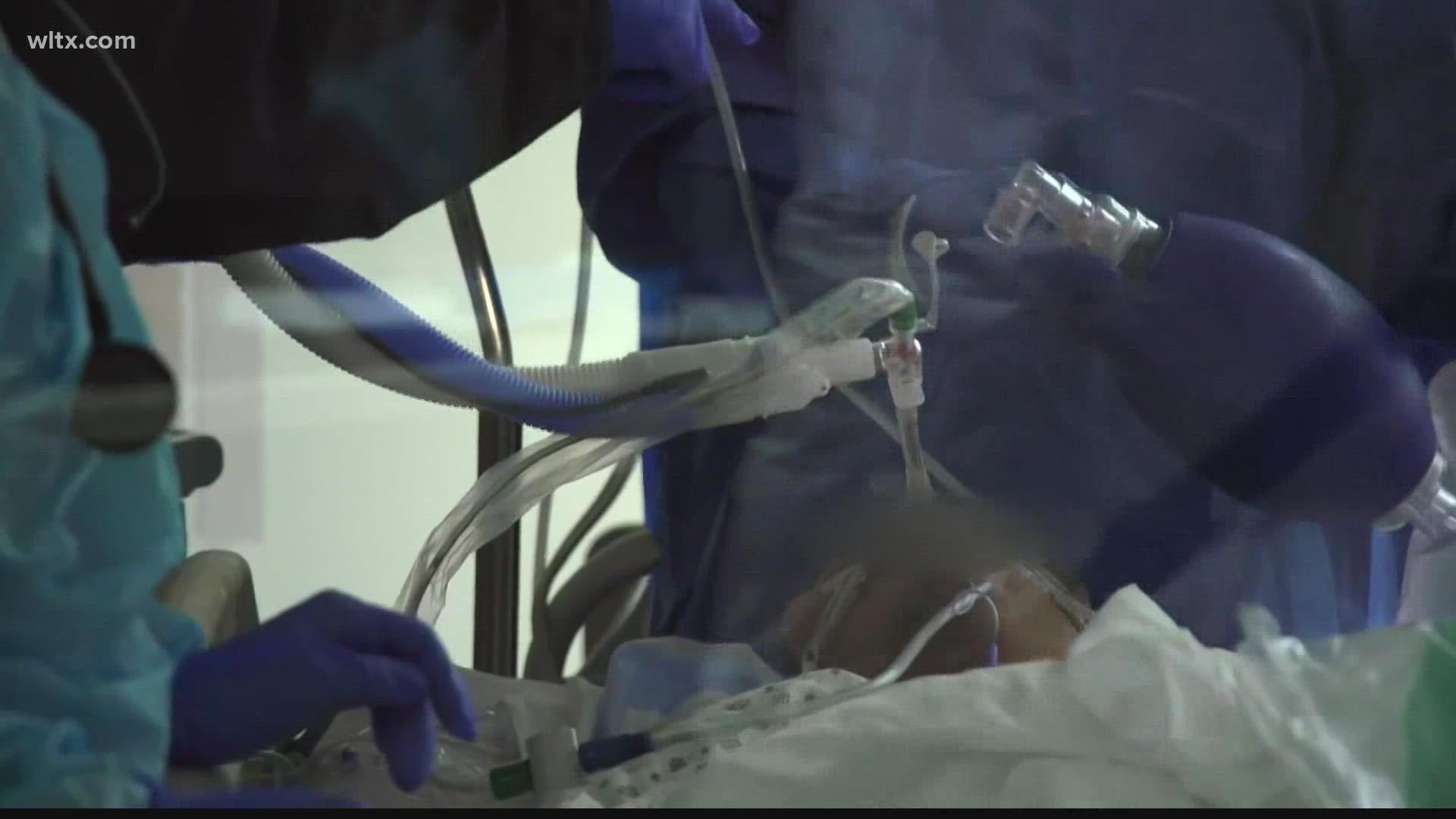COLUMBIA, S.C. — Dr. Wesley Frierson, an emergency room doctor in the Midlands, sees the worst of COVID every day. He says the number of COVID-19 patients needing emergency care is rapidly increasing.
"In certain situations, we're having to call in additional support. The emergency department is crowded, increased waiting times. Everyone is stretched to the limit of their abilities," Dr. Frierson says.
"You walk in and see there may be patients in the hallway, nurses trying to attend to three or four patients at a time," he continued.
Dr. Frierson says patients are coming in at alarming rates. "There are so many patients coming in at this point in time, in comparison to March. I have seen more patients this time around."
Frierson says patients' symptoms are far worse in this recent surge than in the past. "The symptoms are concerning, the amount of illness the new variant is causing."
He says his patients are frightened and struggling to breathe. "The first response is usually 'I can't breathe,' and that, of course, brings anxiety to everyone, including myself, even though I am not the one experiencing the symptoms. I know I have to do something for this patient because it could be between life and death for them."
According to Lexington Medical Center, on Monday, August 9, there were 141 COVID-19 patients in the hospital, 86% of them unvaccinated and 30% in ICU.
On August 11th, the hospital reported 149 COVID patients in the hospital, 86% of which are unvaccinated, 25% in ICU. Four of those ICU patients are fully vaccinated.
"My biggest fear is that we are going to collapse our medical system. We're very close to it being overwhelmed."
Lexington Medical Center says they're critically short of ICU beds, and Dr. Frierson is sounding the alarm. "When it comes to limited resources like ventilators, that is a big concern. We don't know what the next wave will look like, and if you are running out of ventilators now, that is an ominous sign."
And with more people in the ICU, he says he sees the worry in his patients eyes. "I know that they are worried whether they will see their family members again or survive to see them, and that's something I cannot guarantee."

